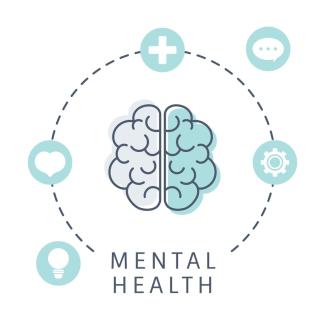
Nutrients play a vital role in brain health and memory function. While the brain requires a variety of nutrients to function optimally, a few are particularly crucial for maintaining cognitive abilities and memory. Here, I'll describe in detail some of the key nutrients important for brain health and memory function:
- Omega-3 Fatty Acids:
- Sources: Fatty fish (such as salmon, mackerel, and sardines), flaxseeds, chia seeds, walnuts, and hemp seeds.
- Importance: Omega-3 fatty acids, particularly docosahexaenoic acid (DHA), are a major structural component of brain cell membranes. They play a critical role in maintaining the flexibility and fluidity of these membranes, which is essential for efficient communication between brain cells.
- Benefits: Omega-3 fatty acids have been linked to improved memory, cognitive function, and a reduced risk of cognitive decline. They may also help protect against neurodegenerative diseases like Alzheimer's.
- Antioxidants:
- Sources: Fruits (blueberries, strawberries, and oranges), vegetables (spinach, kale, and broccoli), and spices (turmeric).
- Importance: Antioxidants help protect brain cells from damage caused by free radicals, which can contribute to cognitive decline. They also reduce inflammation, which can negatively impact memory and brain function.
- Benefits: A diet rich in antioxidants may help preserve memory and cognitive abilities, as well as reduce the risk of age-related cognitive decline.
- Vitamin E:
- Sources: Nuts (almonds and hazelnuts), seeds (sunflower seeds), and vegetable oils (such as sunflower and safflower oil).
- Importance: Vitamin E is a potent antioxidant that helps protect brain cells from oxidative stress. It's also thought to have anti-inflammatory properties that can benefit brain health.
- Benefits: Adequate vitamin E intake may support memory and cognitive function and reduce the risk of Alzheimer's disease.
- B Vitamins:
- Sources: Whole grains, legumes, leafy greens, and animal products (for B12).
- Importance: B vitamins, especially B6, B9 (folate), and B12, are essential for maintaining healthy brain function. They play a role in synthesizing neurotransmitters (chemical messengers in the brain) and in controlling homocysteine levels, which, when elevated, are associated with cognitive decline.
- Benefits: Sufficient intake of B vitamins is essential for maintaining memory and cognitive function, as well as reducing the risk of age-related cognitive decline.
- Choline:
- Sources: Eggs, liver, lean meat, fish, and cruciferous vegetables (like broccoli).
- Importance: Choline is a precursor for acetylcholine, a neurotransmitter critical for memory and learning. It also contributes to the structural integrity of cell membranes in the brain.
- Benefits: Choline is important for memory and cognitive function, and adequate intake during pregnancy may support fetal brain development.
- Curcumin (Turmeric):
- Sources: Turmeric, a spice commonly used in Indian cuisine.
- Importance: Curcumin is a natural anti-inflammatory and antioxidant compound. It has been studied for its potential to enhance memory and cognitive function, and it may reduce the risk of neurodegenerative diseases.
In addition to individual nutrients, a well-balanced diet that provides a variety of essential nutrients, including vitamins and minerals, is crucial for overall brain health and memory function. It's also worth noting that staying hydrated, getting regular exercise, managing stress, and getting adequate sleep are all essential factors for maintaining and enhancing cognitive abilities and memory.






